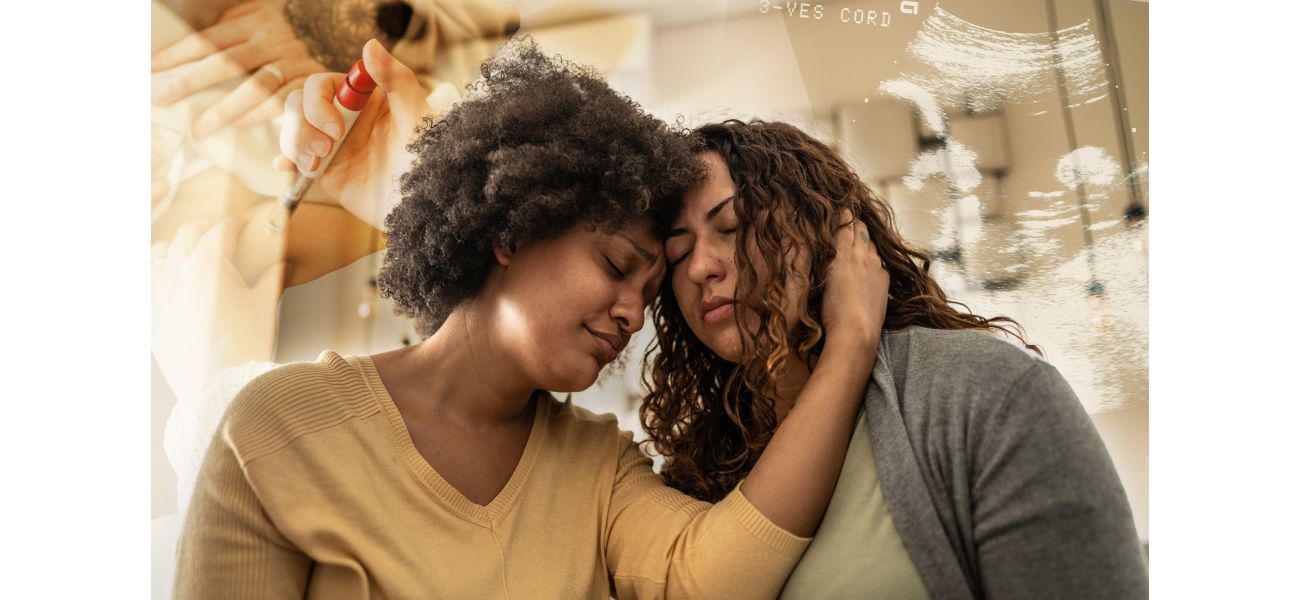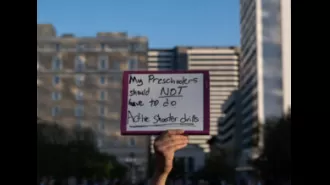Fertility expert claims lesbian couples cannot afford to have children due to restrictive IVF regulations.
High costs prevent some couples from having children.
February 5th 2025.

There is a pressing issue in the UK that is often overlooked - the unfairness faced by queer women who want to start a family. As a fertility expert, Professor Geeta Nargund has shed light on the struggles faced by same-sex couples in accessing fertility treatment. The main options available for queer women are intrauterine insemination (IUI) and in vitro fertilization (IVF). IUI is a non-surgical procedure where sperm is injected into the uterus, while IVF involves removing an egg from the ovaries and fertilizing it with sperm in a lab.
The good news is that IVF is available on the NHS for queer women who meet certain criteria, such as age, previous children, and health status. However, as Professor Nargund points out, the biggest factor in determining eligibility for NHS-funded IVF is location. This has led to a situation where queer women are facing a postcode lottery when it comes to starting a family. In fact, according to Professor Nargund, more than half of the Integrated Care Boards - the bodies responsible for NHS provision - require same-sex couples to try private treatments before being considered for NHS-funded IVF.
For context, this can mean spending over £10,000 on private treatments before being eligible for NHS-funded IVF. This is in stark contrast to the eligibility criteria for straight couples, who only need to prove they have been trying to conceive for two years through unprotected sex. This has resulted in starting a family being more expensive for lesbian couples from the very beginning.
It's not just about the financial burden, but also about the emotional toll that this "gay tax" can take on hopeful LGBTQ+ parents. With over 52,500 patients undergoing IVF in the UK in 2022, it's clear that this is an issue that affects a significant number of people. And as the NHS struggles with budget cuts and staff shortages, more and more people are being forced to turn to expensive private treatments.
But there is hope. Professor Nargund suggests that the government could put an end to the IVF postcode lottery by introducing a "national IVF tariff" to help fund NHS cycles. This is something that is urgently needed to ensure that everyone who needs fertility treatment has equal access to it, regardless of their sexual orientation.
In the meantime, clinics like CREATE Fertility and its sister clinic, abc IVF, are stepping up to help fill the gap for those who are eligible for NHS-funded treatments. They have already helped over 900 LGBTQ+ parents in the UK to have children through affordable IVF treatments.
However, this issue goes beyond just fertility treatments. It is a matter of equality and upholding the founding principles of the NHS - to provide equal and fair access to healthcare for all. As we celebrate the diversity of modern families in our progressive nation, it is essential that we address and rectify this unfairness faced by queer women.
And as we come together to vote for the nominees of the 2025 Metro Pride Awards, let us remember the struggles faced by LGBTQ+ individuals and organizations in our community. The ceremony will honor the talent, resilience, and passion that define our community, and it's important that we support and uplift each other. So join us in celebrating and making a difference as we vote for the winners at www.metroprideawards.com.
The good news is that IVF is available on the NHS for queer women who meet certain criteria, such as age, previous children, and health status. However, as Professor Nargund points out, the biggest factor in determining eligibility for NHS-funded IVF is location. This has led to a situation where queer women are facing a postcode lottery when it comes to starting a family. In fact, according to Professor Nargund, more than half of the Integrated Care Boards - the bodies responsible for NHS provision - require same-sex couples to try private treatments before being considered for NHS-funded IVF.
For context, this can mean spending over £10,000 on private treatments before being eligible for NHS-funded IVF. This is in stark contrast to the eligibility criteria for straight couples, who only need to prove they have been trying to conceive for two years through unprotected sex. This has resulted in starting a family being more expensive for lesbian couples from the very beginning.
It's not just about the financial burden, but also about the emotional toll that this "gay tax" can take on hopeful LGBTQ+ parents. With over 52,500 patients undergoing IVF in the UK in 2022, it's clear that this is an issue that affects a significant number of people. And as the NHS struggles with budget cuts and staff shortages, more and more people are being forced to turn to expensive private treatments.
But there is hope. Professor Nargund suggests that the government could put an end to the IVF postcode lottery by introducing a "national IVF tariff" to help fund NHS cycles. This is something that is urgently needed to ensure that everyone who needs fertility treatment has equal access to it, regardless of their sexual orientation.
In the meantime, clinics like CREATE Fertility and its sister clinic, abc IVF, are stepping up to help fill the gap for those who are eligible for NHS-funded treatments. They have already helped over 900 LGBTQ+ parents in the UK to have children through affordable IVF treatments.
However, this issue goes beyond just fertility treatments. It is a matter of equality and upholding the founding principles of the NHS - to provide equal and fair access to healthcare for all. As we celebrate the diversity of modern families in our progressive nation, it is essential that we address and rectify this unfairness faced by queer women.
And as we come together to vote for the nominees of the 2025 Metro Pride Awards, let us remember the struggles faced by LGBTQ+ individuals and organizations in our community. The ceremony will honor the talent, resilience, and passion that define our community, and it's important that we support and uplift each other. So join us in celebrating and making a difference as we vote for the winners at www.metroprideawards.com.
[This article has been trending online recently and has been generated with AI. Your feed is customized.]
[Generative AI is experimental.]
0
0
Submit Comment





